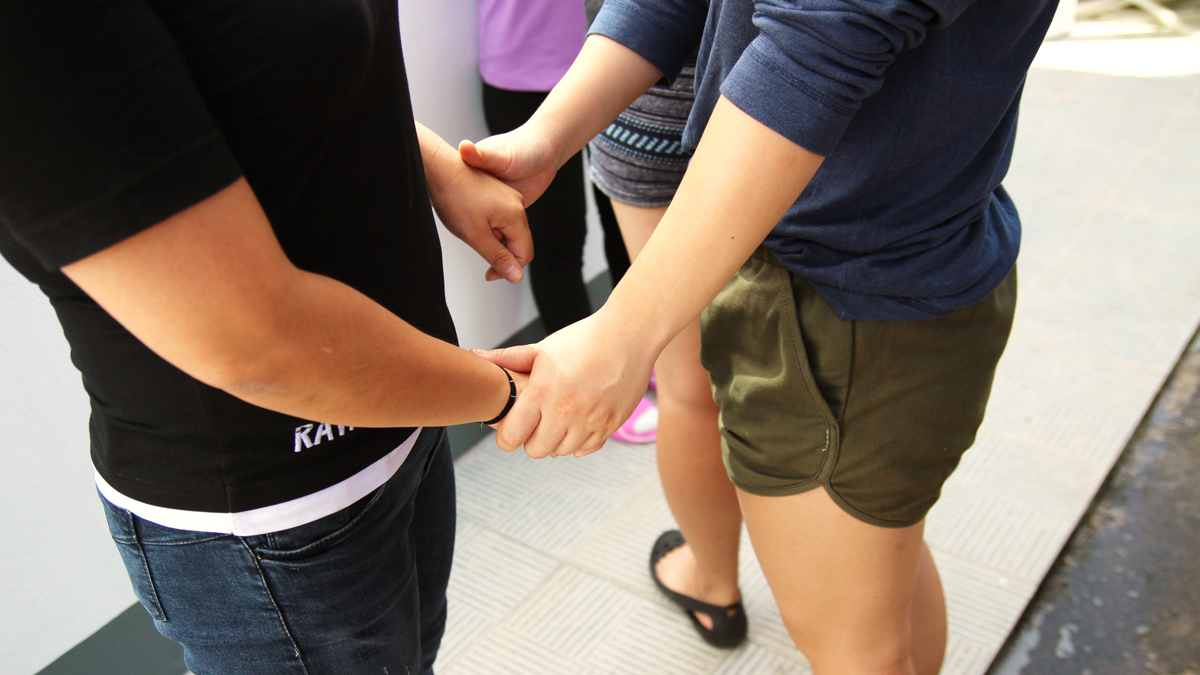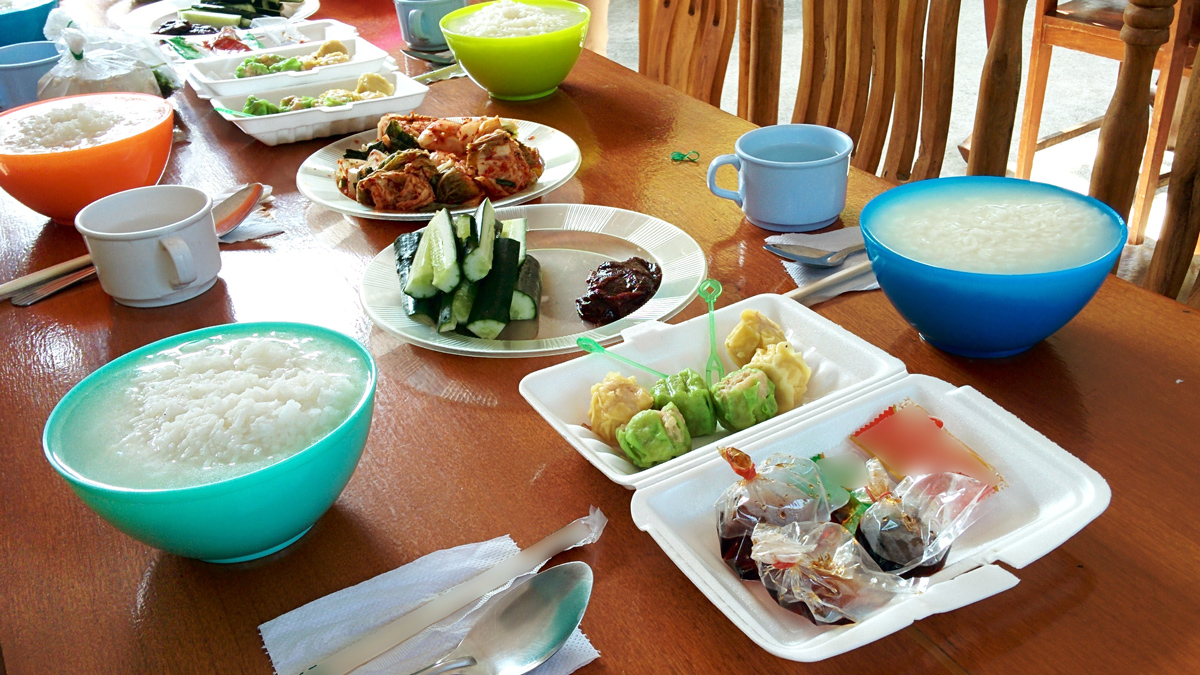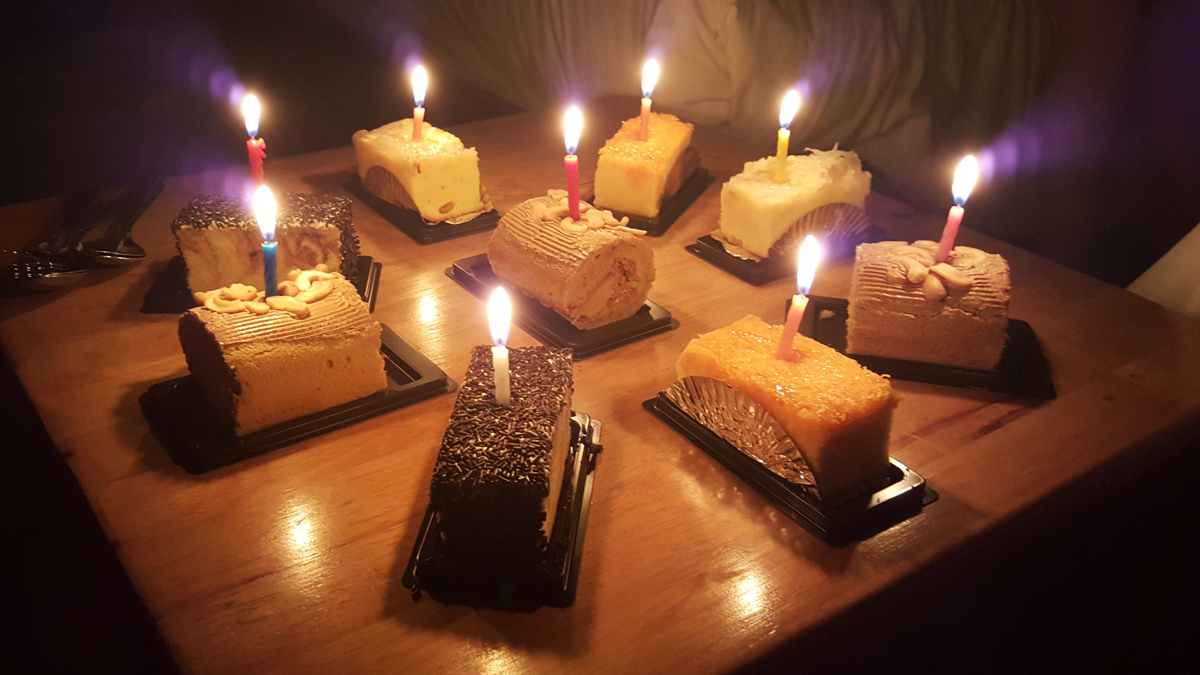A Little Story about How the Media Gets North Korea Wrong

The North Korean government did not tell the people to prepare for another famine, but you probably saw headlines like this in the last week.
Here's how a mere mention of the 'arduous march' in the North Korean state media blew up and was incorrectly reproduced by media around the world in the space of a couple of days:
On March 28th, an essay by two North Koreans, Park Ok-kyoung and Choi Yoo-il, was published in the Rodong Sinmun (North Korea’s main paper). It included a passage, which roughly translates to “The road of the revolution is long and tough. There may again be times that call for chewing grass roots during an arduous march, and times that call for fighting the enemy single-handedly on a far-flung island...but we have to keep our single-minded loyalty for our dear marshal to the very end even if it costs our lives...”
The reference to the 'arduous march', the same term used to label the North Korean famine of the 1990s, caused a lot of excitement. But the term predates the 1990s famine. The original ‘arduous march’ was actually in 1938-39. It was a supposedly tough period of time that Kim Il-sung's band of guerrilla fighters had to 'march' through to victory in their fight against the Japanese occupiers. This tale credits Kim Il-sung for the defeat and is a classic 'struggle through adversity to final victory' type of story. So when times got tough in the 1990s, the official propaganda machine kicked in and framed it as a national struggle through adversity on the way to a final victory.
It was also about maintaining autonomy in the face of external threats, which was the context for this piece. The piece was meant to build up to the Party Congress in May, which is a massive political event that requires 'ideological preparation of the masses'.
So did the North Korean government tell the North Korean people to prepare to chew grass to survive another famine? Or to prepare to fight the enemy all by themselves on a far-off island? Not particularly. They basically said that the North Korean people must stick with their leader, even if things get tough, and all shall be overcome. And it also wasn't written in the name of Kim Jong-un (that would make it more of a story), but in the name of two individuals writing for the paper.
So, why did this happen?
Far too few journalists can read Korean, let alone know how to read and interpret North Korean propaganda. But there's a lot of international appetite for stories about North Korea. So once a piece like this gets out that makes sense to journalists with a peripheral awareness of North Korea, it is easy for it to bounce around the global media echo chambers, getting picked up by many outlets without any accuracy check on the interpretation.
Furthermore, the North Korean government isn’t going to come out and correct it. Here's where there is some truth in the statement "when it comes to North Korea news, anything goes." At this point it becomes something that ‘happened’ without actually happening.
On a brighter note, thanks to the deeper economic and food security resilience built up by the bottom-up marketization, private-plot farming, and linkage to the Chinese economy, a recurrence of a famine on the scale of the 1990s is extremely unlikely in North Korea now.
[Post edited on 2016-04-11 for clarity and accuracy]
Women’s History Month: Honoring the Bravery of North Korean Women
By: Jennifer Kim
Jennifer* is Liberty in North Korea’s Field Manager. Over the years, she’s carefully stewarded our secret rescue routes and helped countless North Korean refugees reach safety and freedom.
Approximately 70% of North Korean defectors are women. Throughout their journey, they face unimaginable challenges, including human trafficking, confinement, and sexual violence.
For Women’s History Month this year, we asked Jennifer to share her experiences supporting North Korean women who have made the brave decision to escape, and bring light to the stories of real people behind the numbers and statistics.

A Transformative First Mission
When I first began this line of work, I was filled with both excitement and anxiety. “Will I be able to connect well with these people?” “Will the field be too dangerous?” Even in my position as a staff member, there were times when the situations we encountered felt riskier because I was a woman.
On my first mission, the group we brought to safety were all women. From their small requests, like asking for sanitary pads, to moments where they cautiously shared their harrowing experiences of human trafficking in China, I found that we could connect on a deeper level because I was also a woman. I realized my role wasn’t just to be a staff member, but to stand by these people as they needed me, as a fellow woman. From then on, the fear I had initially felt about this work transformed into conviction.
North Korean Women At the Forefront of Resistance and Survival
After meeting many North Korean women defectors, I’ve come to learn that there are unique challenges and experiences that only they face. Women in North Korea are not as restricted to job assignments as men, so they’re the ones actively engaged in informal economic activities. They’re running their own black-market businesses and trading smuggled goods, shifting economic power from the regime into the hands of the ordinary people.
Women also make up the majority of North Korean defectors at over 70%. In freedom, they’re leading advocacy efforts and raising awareness for this issue.
I've come to think that perhaps women in North Korean society were the first and most desperate to stand up in resistance.

At the same time, the reality is that women are more vulnerable to gender violence and crime. The moment they cross the North Korean border and set foot on Chinese soil, their precarious legal status and the fact that they are women become risk factors that can lead to human trafficking, sexual exploitation, and forced prostitution. If these dangerous situations lead to pregnancy and childbirth, women often remain in China for years, even decades, weighed down by the conflicting emotions of their longing for freedom and their maternal instincts.
All of the women I met during my first rescue mission were survivors of being trafficked into forced marriages. While there are some cases where these women meet kind families and live in a relatively less dangerous environment, most have to endure difficult lives. One woman who we rescued in 2024 said that in the early stages of her life in China, she was confined and tied up in a single room by the man who bought her. Others had to do forced labor in one of China’s many factories.
Not a News Story, But a Person’s Story
About ten years ago, I watched a video of a woman my age testifying about the hardships and sexual violence she experienced during her defection from North Korea. As a South Korean, I couldn't believe that such things were happening just across the border. Shocked and ashamed of my indifference, I cried for a long time, then resolved to do something.
North Korea used to be something I only saw and heard about through a TV screen. Now those distant news stories have become the personal experiences of the North Korean mothers and friends I’ve met in the field.
At first, I simply wanted to help as best I could. But as time went on and I met more North Koreans, my perspective gradually changed. Now, I feel like I'm not so much ‘helping’ as I am meeting incredible superwomen who have overcome tremendous adversity.
My role is to constantly remind them of their resilience and potential, so they don't forget it themselves.

“This is My First Time Being Treated Like a Queen”
After a successful mission, our team ensures our newly arrived North Korean friends have a proper meal, get some rest, and receive basic necessities. On one occasion, one woman told me, “This is the first time in my life that I have been treated like a queen.”
She had just reached freedom after ten years in a forced marriage to a Chinese man. Her words resonated with me deeply. I realized once again that our work isn't simply about helping people achieve physical freedom; it's about restoring a person's forgotten dignity.
That woman has since resettled in South Korea and runs a small shop. She’s continued to stay in contact with LiNK, sharing updates about her life. One day, she shyly announced her marriage. She’s starting a new chapter with a person she chose and wanted.

Walking Together In Solidarity
Through the friendships I’ve made and stories I’ve witnessed in the field, my connection to this issue has deepened over time. These women aren’t just “nameless” North Koreans, but people like us, living their daily lives; someone’s daughter, sister, or mother. I didn’t set out to do this work for over a decade. But day by day, hearing each story, meeting each person, and holding their hands has naturally led me down this path.
Listen to their stories, and I believe that you too will encounter a heart for the North Korean people.
– Jennifer Kim, LiNK Field Manager
*Jennifer is a pseudonym used to protect our field manager’s identity and avoid compromising this work.

Help North Koreans Win Their Freedom
From inside the country to on the global stage, North Korean women are driving change on this issue. Driven by necessity, desire to care for their loved ones, and aspirations to forge their own path in this world, their pursuit of freedom is both intentional and instinctive.
Liberty in North Korea doesn't just extend a helping hand to North Korean refugees—we’re cultivating the next generation of North Korean leaders, entrepreneurs, and advocates, and doing this work alongside them.
Become a monthly donor today at $20 per month to help more North Koreans reach safety and gain full authorship of their lives in freedom.




